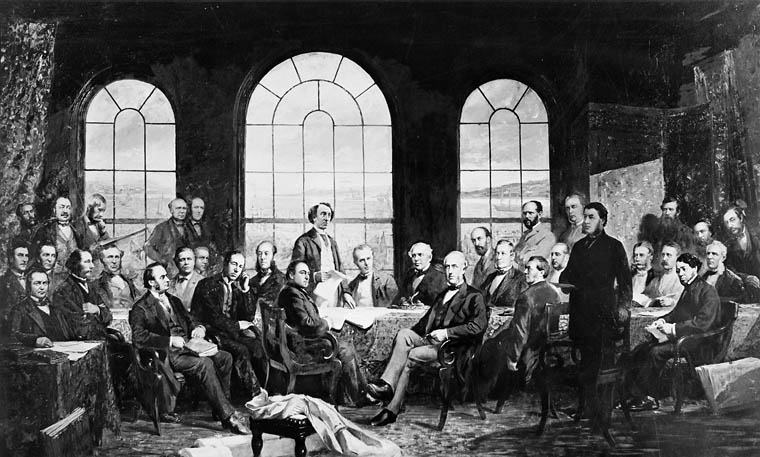Confederation in 1867 was a pivotal moment in the formation of the Canadian state. It was not accompanied by the creation of a bill of rights, however, which raises the question of whether protecting individual rights was part of the original compact that led to the foundation of the Canadian state. The British North America Act, Canada’s initial Constitution, did contain some rights: it guaranteed French language rights in Parliament and in the Quebec Legislative Assembly (and the publication of all laws in English and French), as well as the right to operate Catholic or Protestant schools. It also required periodic elections. True, it did not contain a listing of rights like the American Bill of Rights, but as Janet Ajzenstat shows, the founders of Confederation were profoundly committed to rights. They saw Parliament as the ultimate defender of liberty: thus, because Parliament’s primary purpose was the protection and preservation of rights, they considered a bill of rights to be unnecessary. Like its British counterpart, Canada’s system of government was premised on the idea of parliamentary supremacy. Parliament could make or unmake any law, which no institution could override. As one historian notes, this philosophy informed Canada’s rights culture: “Rights are secure because Parliament is supreme and only when Parliament is supreme.” [Ajzenstat] Human equality was closely linked to the principle of popular sovereignty, the doctrine that sovereign power is vested in the people. But whereas the Americans protected rights through a written constitution, Canadians articulated their rights with reference to British liberties that were protected through customary law, historical precedents, and the supremacy of Parliament.
Although the founders’ speeches were filled with assertions of liberty and rights, they made no mention of human rights. Rather, they referred to the rights that derived from being a British subject, and it would be accurate to say that Confederation was founded on a particular conception of rights expressed as British liberties. These liberties derived from British history, rather than abstract universal principles, and they belonged to British subjects. Rights, including the right to vote or to practise religion, did not extend equally to many Canadians, because of their race, ethnicity, religion, or gender. Indeed, many of those who advocated rights sanctioned slavery and were silent on women’s rights. At the very least, the founders’ conception of rights was restricted to the most fundamental liberties. The principle that rights should belong to all, irrespective of inherent qualities such as race or gender, was not widely accepted in the nineteenth century.
This conception of rights had remained largely unchanged since the rebellions of 1837-38, with one notable exception: the religious and linguistic rights of French Canadians had become an integral component of the compact that lay at the heart of Canada’s founding.
Further Reading
- Ajzenstat, Janet. The Canadian Founding: John Locke and Parliament. Montreal and Kingston: McGill-Queen’s University Press, 2007.

